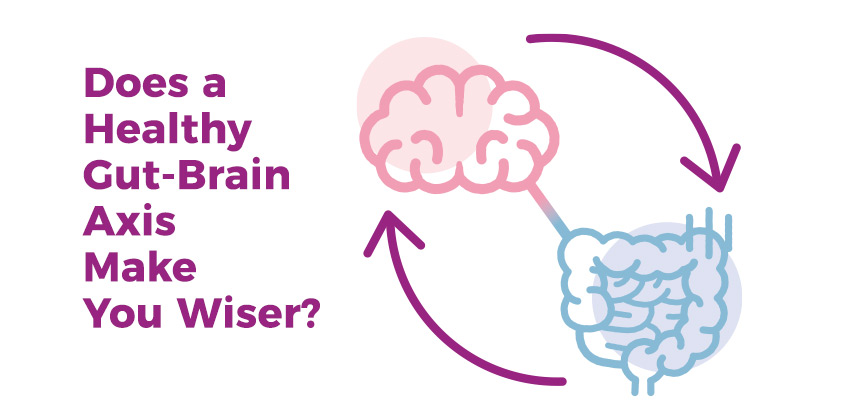Does a Healthy Gut-Brain Axis Make You Wiser?
Not so long ago, medicine debated the existence of the gut-brain axis, the connections that link to and influence your brain, emotions and gut microbiome. It’s hard to dispute that link now, given that about 90 percent of your body’s serotonin, a chemical that works as a brain transmitter, is generated by bacteria in the human gut. Many of us have been more in touch with our gut-brain axis than ever before during the recent coronavirus (COVID-19) pandemic.
We know our gut-brain axis is working when we make those decisions that create butterflies in our stomachs, but could other emotions be telling us everything is working smoothly as it should?
The less lonely gut microbiome
Multiple studies have shown a relationship between the levels of wisdom (more happiness and life satisfaction) and loneliness. For example, the wiser a person is the less lonely they feel, and vice versa.
Scientists at the University of California San Diego (UCSD) School of Medicine recently took this connection between loneliness and wisdom a step further to a gut level in a study appearing in Frontiers in Psychiatry.
UCSD researchers examined the gut health (through fecal samples) and mental health scores of 187 patients ranging in age from 28-97.
Overall, greater levels of wisdom, social support, compassion and engagement were linked to healthier gut microbiomes.
Conversely, a reduced gut diversity was seen in patients, who were more vulnerable to loneliness, particularly older folks who may be more susceptible to health-related consequences, and some of them could lead to death too.
The gut-brain axis in action
What UCSD researchers described in their results points to the gut-brain-axis in action, with the diversity of gut bacteria being the key factor.
The microbial diversity of your gut is critical to so many different parts of your health. Something as simple as eating a Western diet full of high-fat diets and sugar can be a real problem.
Fortunately, there are some simple steps you can take to repair and protect the health of your gut and brain right now.
- Clean up your diet, which may be more statistically beneficial to your overall health than giving up smoking.
- Get the right amount of sleep every day
- Step up your game with exercise.
- Take a probiotic like EndoMune Advanced Probiotic with 10 strains of beneficial bacteria from the Lactobacillus and Bifidobacterium families plus a proven prebiotic (FOS) that feeds the beneficial bacteria in your gut.
References
Does a Healthy Gut-Brain Axis Make You Wiser? Read More »



